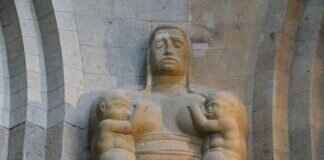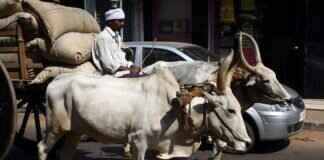The recent wildfires that ravaged Southern California left a trail of destruction, chaos, and uncertainty in its wake. The fires, reminiscent of scenes from doomsday movies, consumed homes, displaced residents, and left a landscape scarred by flames and ash. Among those directly impacted by this catastrophe were the day laborers of the LA Firestorm, a group of hardworking individuals who found themselves at the forefront of the recovery efforts.
Pablo Alvarado, a co-founder of the National Day Laborer Organizing Network (NDLON), shared his firsthand account of the devastation that unfolded in his neighborhood and the surrounding areas. As an advocate for day laborers, many of whom are undocumented immigrants, Alvarado witnessed the profound impact of the fires on these workers and their families. Despite facing personal losses and challenges, these individuals rose to the occasion, transforming their despair into hope and resilience.
Humanitarian Response in the Face of Adversity
In the aftermath of the fires, the Pasadena Community Job Center emerged as a beacon of hope and support for those affected by the disaster. Located in close proximity to the devastated areas, the center became a hub for volunteer efforts, donations, and community outreach. Alvarado described how the workers of the center, despite their own hardships, banded together to form a “fire relief brigade” to assist with the cleanup and recovery efforts.
The outpouring of support and solidarity extended beyond the immediate needs of food, clothing, and shelter. Alvarado recounted how individuals from all walks of life, including those with differing political views, came together to lend a helping hand. The center, once a place where affluent households hired domestic workers, transformed into a symbol of unity and compassion in the face of adversity.
Challenges and Opportunities in Rebuilding
The challenges posed by the wildfires extended beyond the physical destruction of homes and infrastructure. The looming threat of deportation for undocumented workers added another layer of complexity to the recovery efforts. Jennie Murray, president of the National Immigration Forum, highlighted the impact of deportation fears on the willingness of workers to participate in rebuilding projects. Nik Theodore, an expert in urban planning and policy, emphasized the urgent need for skilled construction workers to address the housing deficit exacerbated by the fires.
As the cleanup and rebuilding efforts continue, the issue of worker exploitation looms large. Theodore underscored the vulnerability of workers in crisis situations, where unscrupulous employers take advantage of the urgency to cut corners and exploit labor. Wage theft, lack of protective gear, and unsafe working conditions further compound the challenges faced by workers engaged in cleanup and reconstruction activities.
In the face of these daunting obstacles, the resilience and determination of the day laborers of the LA Firestorm shine through. Alvarado’s account of their courage, camaraderie, and selfless dedication paints a portrait of hope and solidarity in the midst of tragedy. As they navigate the uncertain road ahead, these unsung heroes embody the spirit of resilience and community that defines the human experience in times of crisis.
The fire may have destroyed homes and livelihoods, but it also ignited a spark of unity and compassion that transcends barriers of class, race, and political differences. In the words of Alvarado, “The fire destroyed so much. But it also burned away our differences. Some of the folks we saw come to the center to help were from the MAGA crowd. We complement each other.” As the community rallies together to rebuild and recover, the true impact of the LA Firestorm lies not in the destruction it wrought, but in the bonds of humanity it forged in its wake.














